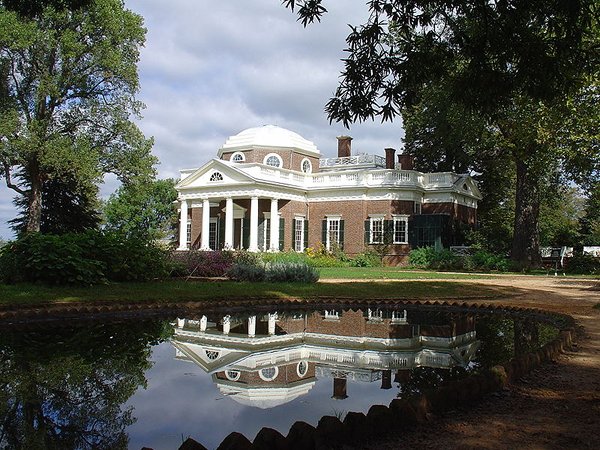As a Southerner (not to mention as an American) I have long been curious about Thomas Jefferson. The excellent HBO series on John Adams (available from Netflix) greatly increased my interest in Jefferson, and I resolved to read a bit about Jefferson as soon as I could get my hands on the right books. I asked an old boss of mine (thanks, Charlie) who loves that period of history for some recommendations. Ken Ilgunas recommended the same books, and Ken even picked them up for me at the Duke University library. They are:
American Sphinx: The Character of Thomas Jefferson, Joseph J. Ellis, Knopf, 1997
Twilight at Monticello: The Final Years of Thomas Jefferson, Alan Pell Crawford, Random House, 2008
Though, to my surprise, I think I would have agreed more often with Adams than with Jefferson on the political issues of the day, still Jefferson shines through these biographies as an incredibly nice man, an idealist, a product of the Enlightenment, a Southerner’s Southerner, an American’s American.
In the epilogue of Twilight at Monticello, there is an unexpected section on the decline of Virginia, and, along with Virginia, the decline of the South. This decline started around the time of Jefferson’s death. Southerners brought it on themselves:
“By the late 1840s, Virginia’s decline had become a matter of public comment, though little was done to arrest it. Before the Revolution, the Richmond Enquirer reported, Virginia ‘contained more wealth and a larger population than any other State of this Confederacy.’ By 1852, the Old Dominion, ‘from being first in wealth and political power, ranked below New York, Pennsylvania, Massachusetts and Ohio.’ These states, except for Massachusetts, were ‘literally chequered over with railroads and canals.’ …
“Intellectual life was almost nonexistent. Virginians published few newspapers and few books. Almost all literary works came from the North. The well-to-do refused to be taxed to pay for the education of their poorer neighbors, and the great majority of young people, white and black, received no formal schooling. A result was the almost complete absence of an educated middle class. There were only land-rich, cash-poor gentleman planters at the top, a somewhat larger group of lawyers, doctors, and merchants just below them, and then poor whites and free blacks at the bottom, followed by great numbers of slaves. Costly in itself, the presence of slaves discouraged the immigration of white laborers, denying Virginia much needed skills and enterprise.
“With discussions of slavery prohibited [by an act of the Virginia legislature], and the mails opened to confiscate abolitionist literature sent from the North, the entire society came to operate under censorship. Slavery, under increasing attack from the North, was passionately defended.”
By the time, about 110 years later, when I started becoming aware of the world, and the South, I’d been born into, not much had changed.

One Comment
Powerful statement there Mr. Dalton – I suppose arrogance from the wealthy and ignorance from those who didn’t know, sped that decline to it’s end. Why then does the south (some of it) still hold to what was and not what is or can be? I’ve only seen parts of the south in my travels, and spent no more than a day or two, here and there, without becoming aware of its present state.
A book I am still reading, A Patriots History of the United States, is helping me understand more; why we in the US are the way we are. Where I live now, is made up of 80%-90% white right/conservative/christian folks, so I have been alienating my neighbors by quoting a line from Samuel Johnson – Patriotism is the last refuge of a scoundrel –
Best regards,
H
“By the time, about 110 years later, when I started becoming aware of the world, and the South, I’d been born into, not much had changed”
Post a Comment